|
QUICK LINKS
Click on any of the images or logos below to go directly to the relvant article.




Charities Supper - dare to dream ....


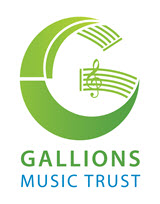

The Livery Kitchens Initiative
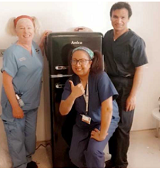
Newsletter Editor:
news@wcomc.org
Website Support:
webadmin@wcomc.org
Issue 1: May 2021
|
|
Introduction
Welcome to the newsletter dedicated to our Company’s philanthropy. The scope of the newsletter includes our pro bono efforts and the work of the Company’s charitable fund. This is the first newsletter to be called “Get to Know Philanthropy”. It has been produced in response to the recommendations of the 2020 Review of the charitable fund and in particular the recommendation to adopt a more integrated approach to our philanthropic efforts. In many ways this is the successor to the “Get to Know Pro Bono” newsletters, which are all still available on our Company Website.
These “Get to Know” newsletters have the following objectives:
- To promote the work of the Pro Bono committee and our pro bono volunteers to the wider membership. In doing so, we aim to recognise more prominently the efforts of our volunteers, and to provide public thanks to them.
- To promote the work of the Company’s Charitable Fund and the grants it makes.
- To demonstrate the value of pro bono consulting to both the donor and recipient.
- To bring pro bono work to life with series of case studies. (If you have been involved in a Pro Bono consulting assignment, why not write up a short case study, highlighting what help you were able to bring to the Charity and what you yourself got from the assignment? We’ll publish such cases studies for future newsletters).
In each issue we'll talk about a particular pro bono case study on one of our major clients, have a roundup of some other recent pro bono assignments, provide an update our ongoing relationships (e.g. in this issue, the Sea Cadets), and review recent grant requests and grants.
Your feedback and future contributions will be welcomed.
Philanthropy Case Study:

The Common Room has benefited both from a Grant of £10,000 by our Charitable Fund and from significant pro bono support from PM Patrick Chapman. It’s a great example of “Funding plus” model of support recommended by the recent review of the Charitable Fund.
Background:
The Common Room was developed by The Age of No Retirement CIC in 2018, and successfully piloted 2019/20. Funded by Innovate UK, the design-led project set out to identify the single most powerful motivational force held in common by people of all ages. The project was inspired by the earlier research-based discoveries by The Age of No Retirement, that people of all ages have much more in common than the generational stereotypes would have us believe.
The Common Room is based on 7 core principles, discovered through exploring life stories with 80 people of all backgrounds, aged 25-80.
The 7 Principles:
1. Purpose. Finding purpose in the work one does is a powerful motivator, felt equally by people of all ages. The Common Room is purpose-led, not age-led. It is not an “intergenerational” hub, it is a Purpose hub which behaves in an age-blind way. Being a powerful proxy for Age (and Age being the macro set of all diversities), Purpose is the true community integrator.
2. Place. The Common Room is not yet another App or website or online forum. It is a physical place. We discovered that, outside school, college or university, there are very few places for adults to go to explore their purpose, find inspiration or consider their work and career options.
3. Human connection. We need to create safe and supportive places where time can slow down, to let trust develop and relationships flourish. This is only possible in-person, face to face.
4. Hosted. The Common Room is anchored by people. People who welcome newcomers in, create an environment conducive to conversation and sharing, facilitate introductions and support members towards their purpose goals.
5. Curriculum. The Common Room has a unique workshop-based curriculum called The Purpose Playbook. It takes members on a journey of self-discovery – from reconnecting with what is most important in life, to identifying and eliminating obstacles, exploring one’s super-skills, crafting a Social CV, and creating a Purpose Plan. The Purpose Playbook describes the process towards goal achievement and success in work, start-up and volunteering.
6. Freedom. The Purpose Playbook occupies less than 30% of the available time in The Common Room. The remainder is for members to utilise. Members are free to work, start new businesses, create community impact projects, launch campaigns, start clubs, host movie nights or cultural celebrations, curate exhibitions, or offer family activities during school holidays. The Common Room is an asset which belongs to the community. Members have the freedom to explore its full potential.
7. Entry point. The Common Room is the entry point for people who are stuck for one reason or another. They may be unsure of which career direction to take; they have been out of work for too long and unsure of the currency of their skills; they may lack confidence; be trapped in a job they hate; they may have an unfulfilled passion; they may be young or old, rich or poor. The Common Room is the starting point. It then integrates with local job and start-up services, providing a steady stream of purpose-aligned, more confident people.
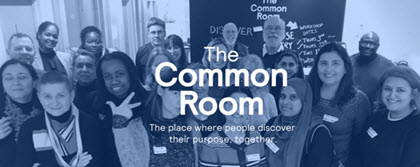
Support from the Company:
We helped the Common Room to review and analyse the learnings and outcomes of two proof-of-concept sites (LB Islington and Waltham Forest), and to create a new Common Room business model, better suited for achieving impact at scale, faster. We also used the personal networks of our Members to make introductions to local authorities around the Country. The key ingredient in setting up a local Common Room is the gift of space in which to operate.
The Common Room is now relaunching to enable local authorities and community organisations to create 'purpose power' stations for their residents - to help people and their communities build back better, faster. People are going to need a space to find purpose – to rebuild their confidence, to find new work, to start new businesses, to launch new careers, to help and support each other, and to rebuild their communities.
The Chief Executive of the Common Room, Jonathan Collie, made an excellent presentation at the start of the Charitable Fund Trustees meeting on Monday 19th April at which he updated the Trustees about how the charity has managed during the lock down, and plans for expansion going forward; plans which include a further 3 Common Rooms now in development.
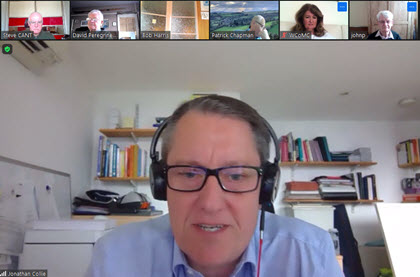
Pro Bono Update
We have about 30 live and active pro bono consulting assignments and a dozen or more mentoring assignments. In this section we’ll try to highlight a small sample of current or recently completed assignments:
- Kevin Hughes is working with Huntington’s Disease Association in NI on “Measuring Action Impact”. The Association works throughout Northern Ireland providing support, information, advice and social connections to those living with the impact of Huntington’s Disease. The Charity aims to develop new streams of project funding which will require more measures of impact to be included than in the past. These measures relate to their activities that involve both their directly affected stakeholders and their wider community links. We worked in partnership with their IT provider to retrofit changes to their client database that allow reporting and usage to be gathered on activities and cases that to date were not measured. Now HDANI have Impact driven infographics that will be used for social media as well as supporting their funding applications. As a result of our advice and getting insightful data from the IT provider, an originally refused application for HDANI for lottery funding was resubmitted and was successful to the tune of £275k. This was a good result all round, particularly as the CEO prepares to on maternity leave in the knowledge that the Charity has achieved financial stability.
- Bob Harris has been providing advice and mentoring to Mike Evans - the CEO of the EFL Trust - since October 2020. This charity provides leadership to the charitable arms of the 72 clubs in the English Football League, and co-ordinates the work of this network in key national programmes that support healthy living and youth development such as the National Citizen Service and the Kick Start programme. Naturally, there is lots of football-related discussion on every mentoring call as well as advice on personal and organisational development. Mike was surprised to learn that the Current Chairman of the EFL worked as a junior consultant at EY in the 1980s on a programme directed by Bob.
- From late 2019 Steve Cant worked with Art History Link-up to help with Business planning and long-term strategy. This evolved into support about going online during lockdown and then with fundraising. He ended up becoming became a Trustee & Treasurer in September 2020. It can happen – as it did with Patrick Chapman and Guiding Wales!
- Terry Corby is working with Arts 4 Dementia on succession planning.
- Gia Campari worked with the British Science Association to deliver a workshop on Conflict Resolution.
YBI: Our long running support for the YBI accreditation programme, which had gone virtual during lockdown in 2020, is currently on hold following staff changes at YBI. More information on this in due course.
Showcase: There was a pro bono showcase back in February which was reported in the Company newsletter but is worth flagging here where it probably should have been in the first place. The showcase focussed on teamwork on pro bono assignments and the benefit that brings to both clients and the volunteers. Read all about it here.
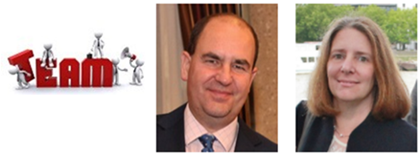
Call for pro bono volunteers:
Our pro bono consulting assignments are staffed by a relatively small proportion of our Members, and the pro bono committee are always on the lookout for new willing volunteers. Members of the pro bono committee are available to advise, coach and generally support members on pro bono assignments, so if you are minded to volunteer, please do contact the Chair of the pro bono committee, Patrick Chapman.
Recent Grant Applications
The table below summarises the applications received and reviewed by the Trustees over the past few months and sets out the decisions made, the rationale behind those decisions and in particular any support or interest by members of the Company. We have begun to use the new grant assessment process, and this is also noted below. An explanation of the operation of this process will be contained in the next GTK philanthropy newsletter.
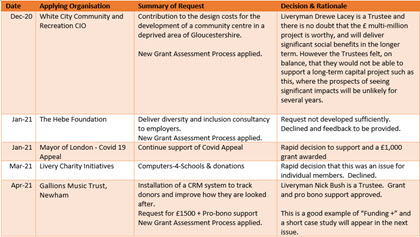
Charities Supper 2022
Good news… we’ve started, tentatively, thinking about it… We’ve got some speakers lined up and aim to repeat the format from previous successful years. The probable date will be during the week of 24th – 28th January 2022. Fingers crossed.
The Trustees of The Charitable Fund
One outcome of the review recent review was to give trustees of the Fund specific roles and responsibilities. These are shown in the table below:

A short role description has been created for each of these roles.
We are working on added a new page to the Company Website where we are being transparent about the Trustees of the charitable Fund. In line with best practice we'll include short pen pictures of the Trustees.
Pan Livery Philanthropy
2W Bob Harris continues to represent the Company on the Pan Livery Steering Group which is chaired by Past Lord Mayor Alderman Sir Charles Bowman, and attended by the current Lord Mayor and other senior representatives of the Livery. Following the 2020 Survey of Philanthropic Giving by Livery Companies which was published in February and is available to read here, the focus of the PLSG has turned to a communications strategy to facilitate wider understanding of the extensive range of charitable support provided by Livery Companies. This strategy will encourage individual companies to publicise their own charitable work through a range of communication channels, and to encourage further initiatives where multiple companies have worked together. Four examples of such collaboration are:
- The No Going Back initiative which provides training and counselling to prisoners and then provides jobs and housing on release from prison. This was initiated by the Mercers and now has more than a dozen livery companies involved. In addition to financial support, some of the companies involved have brought expertise in governance, provided volunteer counsellors, facilitated jobs for ex-offenders and helped to provide suitable housing. There are now plans being developed to transform the charity into a self-funded social enterprise.
- The Livery Kitchens Initiative was established in March 2020 to provide high-quality hot meals to NHS staff working in hospitals in the City and St Barts Health Trust who were under huge pressure during the first and second waves of covid. Several Livery Companies led by the Drapers provided their kitchens and catering staff at no cost while others such as the Grocers and the Fruiterers provided supplies, and the Hackney Carriage Drivers provided transport. Over 50 other Livery Companies gave financial support. When the pressures on the NHS eased, the service then switched to providing meals to an inner city charity providing food to those in need.
- The Livery Climate Action Strategy was launched after a successful workshop in January 2021 and currently has representatives from over 50 Livery Companies involved in several workstreams, including property, financial investment and education. While this initiative is at an early stage and has yet to refine its focus and objectives, it is clear that it has struck a chord across the livery.
- Pollinating London Together has been established by the Wax Chandlers to address issues about pollination in London and more widely. Again at an early stage, it has attracted the interest of several Livery Companies involved in architecture, property management, food and drink and other aspects.
Bob is working with a sub-group of PLSG to develop a framework to identify the features of these different cross-livery initiatives which encourage and facilitate collaboration – there is surely a role for WCoMC in this effort. He is also involved in planning a Livery Conference to be held in October which will showcase some of the most interesting and collaborative projects, and to which all Livery Companies will be invited to send two delegates.
The History of the Charitable Fund
The fund has been around for as long as the Company and indeed the creation of the fund was a necessary precursor to the creation of the Company itself, but not everyone knows about that, especially newer members (anyone joining since about 2010!). A huge amount of effort went into setting up the fund and into generating sufficient funds and this has all been documented in a history by PM Alan Broomhead. There are some really interesting and inspiring historical nuggets in here. For example, as part of his determination to achieve the £300,000 threshold (the size of the fund needed for the Company to achieve Livery Company Status), PM Patrick McHugh entered his yacht, Marian Maid, in the 2004 Three Peaks Race, having previously obtained sponsorship from Regent Pacific for £10,000. You can find the History on the company website and it’s well worth reading.
The History of the Our Relationship with the Sea Cadets
Our relationship with the Sea Cadets is long, complex and ongoing. Over the years the London Area has received £42,500 in grants and £41,000 in gala proceeds. Total grants to Sea Cadets amount to £110,775 since 2003 with the main amount being £22,075 to support the construction of the new TS ROYALIST. You can read a full account of this long relationship in an article by (again) PM Alan Broomhead (again on the Company website).
Our relationship with the Sea Cadets is currently maintained by 3W Kanan Barot.
The Sea Cadets have recently made inquiries about another grant application in relation to some refresher first aid training and we expect to hear from them soon. Any new application will be subject to the new grant assessment process now in place.
Review of the Charitable Fund
The review of the operation of the Charitable Fund, undertaken by Geoff Berridge and Steve Cant, has run for 15 months from February 2020 but has now concluded. You will see changes as they occur. We are already using the improved grant assessment process to good effect and there will be more about how it works in the next GTK Philanthropy.
---000---
Thanks for reading this far. Don't we do a lot of great stuff?!
A big thank you goes to the Chairs of the Pro Bono Committee (Patrick Chapman) and the Charitable Fund (David Peregrine-Jones) and to 2W Bob Harris for all their support in getting this new publication off the ground.
To repeat, your feedback and future contributions will be very welcome.
|